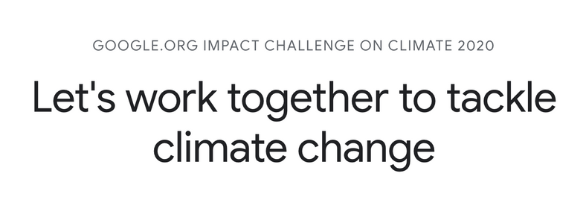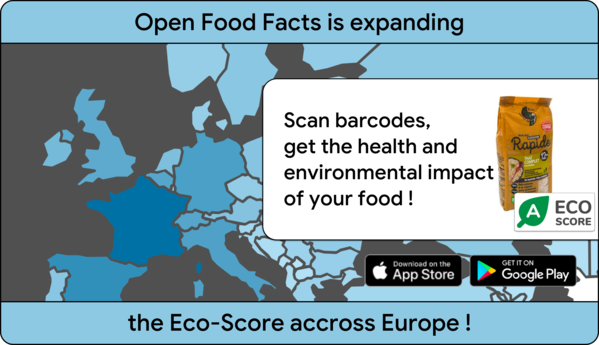
Open Food Facts laureate of the Google Fellowship and the Google Impact Challenge for Climate
In a nutshell
|
Strong support from Google.org to Open Food Facts
In April, We announced that Open Food Facts was awarded a grant of 1.1M euros to support its work. Since good news come in pair, today, Google has announced that at least 7 of its employees will also spend the next six-months working full-time for Open Food Facts, as part of the Google.org Fellowship , a pro bono programme that matches Google employees with nonprofits and civic entities on technical projects. We are very proud that the community work of Open Food Facts has caught the attention of Google.org.
Together with Google.org Fellows, Open Food Facts will build a model to automatically compute the Eco-Score for millions of products, using machine learning and natural language processing. They’ll also work together to build a new mobile app to help users rank products, track their consumption and organise their pantries to reduce food waste.
Eco-Score expands in Europe
We are also pleased to announce on this occasion the extension of the Eco-Score beyond France, to eight other European countries, including Belgium, Germany, Ireland, Italy, Luxembourg, the Netherlands, Spain and Switzerland.
With a simple scan on the Open Food Facts mobile app, shoppers in those countries can now see the environmental impact score of more than 400,000 everyday grocery items, from coffee and cereal to pasta and biscuits.
With one quarter of global emissions coming from food, consumers are increasingly concerned about the environmental impact of their everyday purchase decisions.
We hope that the Eco-Score will help retailers meet this growing demand; already, a number of major grocery chains, including Lidl in Germany, have launched Eco-Score pilots, and are about to add the label to thousands of products online and in select stores.
By the end of the year, Open Food Facts expects to expand to 27 more countries, and have more than a million products scored, growth made possible through additional support they’ve received from the Google.org Impact Challenge on Climate.

